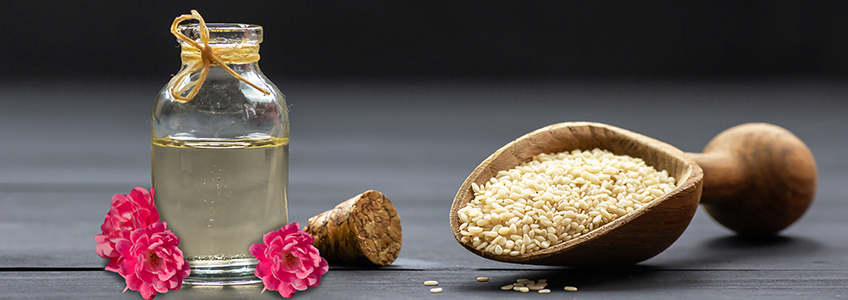Dr. Mercedes Briones, researcher and educator associated with the Iberoamerican University Foundation (FUNIBER), collaborates in a study that evaluates the efficacy of sesame seeds and oil of damascena rose to treat uncomplicated pelvic inflammatory disease.
Uncomplicated pelvic inflammatory disease (uPID) is a common and serious infection of the female genital organs in women of reproductive age. This disease is characterized by symptoms that are often mistaken for psychogenic causes, leading to misdiagnosis and complications in patients. However, recent research has found a connection between uPID and certain microbial infections, such as Mycoplasma genitalium, Neisseria gonorrhoeae and Chlamydia trachomatis.
Traditional medicine states that uPID is an infection-induced inflammation in the upper genital tract as a result of an infection in the lower genital tract. Although the exact pathogenesis of uPID pelvic pain and inflammation and its relationship to the central nervous system is unknown, it is suggested that proinflammatory markers have a direct influence on nociceptive activity, resulting in the perception of pain sensation. Alterations in the hypothalamic-pituitary-adrenal (HPA) axis and central sensitization have also been observed to play important roles in the development of chronic pelvic pain.
The emotional and physical impact of chronic pelvic pain is extensive, often resulting in cognitive, behavioral, and sexual problems. Thus, the quality of life of affected individuals is compromised. Symptoms of this infection include vaginal discharge, fever, lower abdominal pain and comorbid psychiatric disorders. For this, some treatments have been developed to alleviate the painful and systemic symptoms and prevent the spread of the infection; however, the antibiotics used generate certain adverse effects in the human body.
Botanical medicine has shown efficacy in the treatment of infection, such as sesame seeds and oil from damson roses. Both substances were found to exhibit antimicrobial, analgesic, anti-inflammatory and antioxidant properties, making them suitable for the treatment of uPID.
In this study, the therapeutic efficacy and safety of sesame seeds and rosa damascena oil in treating pelvic infection is explored. A novel drug was developed from the combination of the seed powder and rose oil. The results obtained revealed that this drug has a similar therapeutic effect to the standard drug used in the treatment of uPID; it inhibits microorganisms, reduces pain and inflammation. These findings motivate further research and clinical use of natural and alternative therapies in the management of this condition.
If you want to learn more about this fascinating study, click here.
To read more research, consult the UNEATLANTICO repository.
The Iberoamerican University Foundation (FUNIBER) promotes several study programs in the area of health and nutrition. Click here to learn more about them.
